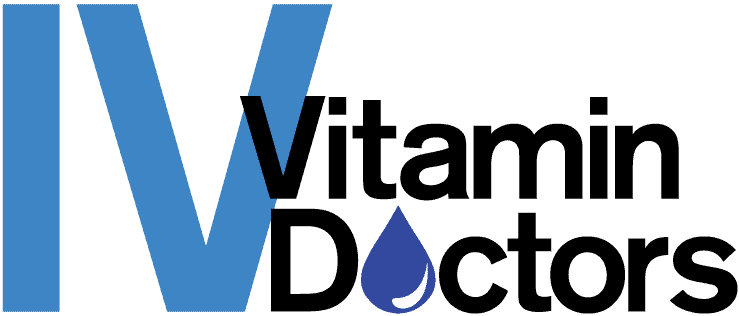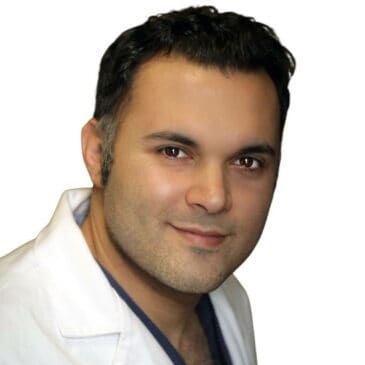After COVID-19, many have encountered an unexpected and distressing side effect: hair loss. As we navigate the path to recovery, the spotlight has turned towards an unlikely ally—vitamins.
The role of vitamins in the body’s healing and regrowth processes cannot be overstated, incredibly when revitalizing our hair. This blog delves into the critical importance of vitamins in combating post-COVID hair loss and fostering hair regrowth.
From understanding the science behind hair growth to integrating essential nutrients into our diets, we’ll explore how the right balance of vitamins and minerals can be a game-changer in your journey to reclaiming healthy, vibrant hair.
Join us as we unravel the secrets to restoring your hair’s natural strength and shine post-COVID.
Understanding Post-COVID Hair Loss
The phenomenon of hair loss following a COVID-19 infection has become increasingly common, drawing attention to the need for a deeper understanding of its causes and mechanisms.
Check what vitamins are good for hair growth.
Let’s delve into the concept of telogen effluvium, a primary culprit behind post-COVID hair loss, and explore how the stress of a COVID-19 infection impacts the body’s hair growth cycles.
Telogen Effluvium: The Basics
Telogen effluvium is a form of temporary hair loss that typically occurs after stress, a shock, or a traumatic event to the body.
Under normal circumstances, hair growth goes through three main phases:
- Anagen (growth phase)
- Catagen (transitional phase)
- Telogen (resting phase)
A healthy scalp will have hair in all three phases at any given time.
However, in telogen effluvium, significant stress on the body can prematurely push more hairs into the telogen phase. After about 3 months in this resting phase, these hairs fall larger than usual, leading to noticeable hair thinning and loss.
COVID-19 and Its Triggering of Telogen Effluvium
COVID-19 can act as a significant stressor on the body for several reasons. Firstly, the infection can lead to high fever, severe illness, and nutritional deficiencies, which can shock the body enough to trigger telogen effluvium.
Secondly, the psychological stress from dealing with the illness, including anxiety and depression, can further exacerbate this condition.
The Stress of COVID-19 on the Body
The stress the body undergoes during and after a COVID-19 infection is multifaceted. Physiologically, the immune response to fight the virus can lead to widespread inflammation and elevated stress hormones, disrupting the normal hair growth cycle. This disruption is not limited to the hair; it reflects a body under siege, trying to protect and repair itself.
Nutritional deficiencies may also play a role. The body’s metabolic demands increase during illness, potentially depleting the nutrients essential for hair growth, such as vitamins D, B12, iron, and zinc. Moreover, the gastrointestinal symptoms associated with COVID-19, such as diarrhea and vomiting, can impair nutrient absorption, further contributing to hair loss.
Psychological stress should not be underestimated either. The pandemic has brought about significant mental and emotional strain, from the fear of the virus to the impact of isolation and economic uncertainties. Chronic stress affects the hair growth cycle, pushing hairs into the telogen phase.
Effects on Hair Growth Cycles
The combined physical and psychological stressors associated with COVID-19 can lead to a synchronized shift in the hair growth cycle, with an unusually large number of hairs entering the telogen phase.
The hair cycle can normalize once the body recovers and stress levels decrease. However, this process is slow, and hair density may take several months to return to pre-illness levels.
The Science Behind Hair Growth and Nutrition
Hair growth is a complex process influenced by various factors, including genetics, hormones, and nutrition.
Understanding how hair grows and the nutritional building blocks it requires is crucial for maintaining healthy hair and preventing hair loss. This section explores the science behind hair growth and how specific vitamin and mineral deficiencies can lead to hair loss or thinning.
How Hair Grows
Hair growth occurs in a cycle that includes three phases: anagen (growth phase), catagen (transitional phase), and telogen (resting phase).
- Anagen Phase: This is the active growth phase of hair follicles, lasting from two to six years. During this period, cells in the root of the hair divide rapidly, adding to the hair shaft and causing the hair to grow about 1 cm every 28 days. The length of the anagen phase determines the maximum length of hair.
- Catagen Phase: Lasting about two to three weeks, this phase is a transitional stage where hair growth stops, and the outer root sheath shrinks and attaches to the root of the hair. This process forms what is known as club hair.
- Telogen Phase: This is the resting phase, lasting around three months, during which hair does not grow but does not fall out. At the end of this phase, the hair follicles re-enter the anagen phase, and new hair begins to grow, pushing the old hair out.
Nutritional Building Blocks for Hair
For hair to grow and remain healthy, it requires a variety of nutrients, including proteins, vitamins, and minerals. Here’s how specific nutrients contribute to hair health:
- Protein: Hair is primarily made of keratin, which means adequate protein intake is essential for hair growth. Protein malnutrition can lead to weakened hair and eventual hair loss.
- Vitamin A: Necessary for cell growth, including hair cells. It also helps produce sebum, moisturizing the scalp and keeping hair healthy.
- B-Vitamins, particularly Biotin (Vitamin B7): Known for its role in hair growth. Biotin deficiencies can lead to hair thinning.
- Vitamin C: An antioxidant that helps protect hair follicles from damage by free radicals. It also plays a crucial role in collagen production and iron absorption, both important for hair health.
- Vitamin D: Linked to hair production. Low vitamin D levels are associated with alopecia, a technical term for hair loss.
- Vitamin E: Another antioxidant that can prevent oxidative stress, promoting scalp health and hair growth.
- Iron: Essential for hair growth. Iron deficiency, which is quite common, especially in women, can lead to hair loss because it is involved in producing hair cell protein.
- Zinc: Plays a role in hair tissue growth and repair. It also keeps the oil glands around the follicles working properly. Zinc deficiency can lead to hair loss.
How Deficiencies Lead to Hair Loss
Specific vitamin and mineral deficiencies can disrupt the hair growth cycle, leading to hair loss or thinning:
- Protein Deficiency: This can shift hairs into the resting phase, leading to hair loss.
- Iron Deficiency: One of the most common causes of hair loss, it affects the anagen phase by reducing the body’s ability to produce hemoglobin, which is crucial for hair growth.
- Zinc Deficiency: This can lead to a deterioration of the protein structure that makes up the hair follicle, weakening the hair and causing it to fall out.
- Vitamin D Deficiency: May impair hair follicle cycling, potentially leading to hair loss.
Integrating Diet and Nutrition with IV Therapy for Hair Recovery
The journey to recovering hair health, especially after an event as taxing as a COVID-19 infection, requires a multifaceted approach.
Integrating a nutrient-rich diet with targeted IV vitamin therapy can create a powerful synergy, promoting optimal hair regrowth and overall wellness.
Dietary Integration for Hair Health
A well-balanced diet is foundational for hair recovery, as it supplies the body with the necessary vitamins and minerals to support hair growth. Here are critical dietary considerations for enhancing hair health:
- Protein-Rich Foods: Since hair is primarily made of keratin, a protein, including adequate protein in your diet is crucial. Lean meats, fish, poultry, eggs, and legumes are excellent sources.
- Iron-Loaded Foods: Iron helps boost hair growth by enhancing oxygen delivery to the hair follicles. Incorporate iron-rich foods like spinach, lentils, fortified cereals, and red meat into your meals.
- Vitamin C Sources: Vitamin C aids in collagen production and iron absorption. Fruits like oranges, strawberries, kiwis, and vegetables like bell peppers and broccoli are rich in vitamin C.
- Omega-3 Fatty Acids: These healthy fats promote hair growth and shine. Find them in fish like salmon and mackerel, as well as in flaxseeds and walnuts.
- Zinc and Selenium: Both minerals support hair health. Foods like oysters, beef, pumpkin seeds, and Brazil nuts are excellent sources.
- B-Vitamins: Whole grains, avocados, nuts, and dark, leafy greens are packed with B vitamins, including biotin, essential for hair strength.
IV Vitamin Therapy for Rapid Nutrient Replenishment
While a nutrient-rich diet is essential, IV vitamin therapy can significantly enhance the body’s ability to recover from nutrient deficiencies quickly.
This therapy involves administering vitamins and minerals directly into the bloodstream, bypassing the digestive system for immediate and full absorption. Here’s how it benefits hair recovery:
- Efficiency: IV therapy delivers nutrients directly to where they’re needed, ensuring that your body can utilize them immediately to support hair regrowth.
- Customization: Treatments can be tailored to address specific deficiencies identified in individual health assessments, ensuring you receive the nutrients your body lacks.
- Speed: By providing the body with immediate access to essential hair-building nutrients, IV therapy can accelerate the hair recovery process, potentially leading to quicker visible results.
Personalization of Treatments
Personalized treatment plans are at the heart of effective hair recovery strategies. Each individual’s body has unique nutritional needs, influenced by factors like the extent of their hair loss, overall health, and lifestyle. Here’s why personalization matters:
- Targeted Support: By identifying specific nutritional deficiencies through comprehensive health assessments, treatments can be customized to target those deficiencies, offering more effective support for hair regrowth.
- Holistic Approach: Personalized plans can integrate dietary recommendations with IV therapy, ensuring a holistic recovery approach that addresses immediate and long-term nutritional needs.
- Adaptability: As your body recovers and your nutritional needs change, personalized treatment plans can be adjusted to meet your evolving requirements, ensuring sustained support for hair health.
Practical Tips for Enhancing Hair Health Post-COVID
Recovering from COVID-19 can be challenging, especially when dealing with side effects like hair loss.
However, it’s possible to support and enhance hair regrowth with the right strategies. Here are practical tips designed to help nurture your hair back to health, focusing on stress management, gentle hair care practices, and a balanced lifestyle.
Stress Management Techniques
Stress is a significant factor that can exacerbate hair loss, making stress management an essential part of your hair health regimen.
- Mindfulness and Meditation: Regular practice can significantly reduce stress levels, positively affecting overall health and hair growth.
- Regular Exercise: Physical activity increases blood flow, including to your scalp, nourishing hair follicles. It also helps in reducing stress.
- Adequate Sleep: Ensure you get 7-9 hours of quality sleep each night to help your body recover and regenerate, including your hair.
Gentle Hair Care Practices
How you treat your hair can impact its health and ability to regrow. Being gentle and avoiding harsh treatments can make a significant difference.
- Avoid Over-Styling: Minimize the use of heat styling tools like hairdryers, straighteners, and curling irons, which can weaken your hair and lead to breakage.
- Choose Hair Products Wisely: Opt for sulfate-free shampoos, conditioners, and natural ingredients that nourish the scalp and hair.
- Be Gentle When Wet: Hair is more vulnerable when wet, so avoid brushing it immediately after washing. Instead, use a wide-tooth comb to detangle gently.
- Limit Chemical Treatments: Chemical processes such as coloring, perming, or straightening can damage hair. Try to reduce their frequency or avoid them altogether.
Maintaining a Balanced Lifestyle
A holistic approach to health can positively impact hair growth, involving a balanced diet, hydration, and avoiding harmful habits.
Nutritious Diet: As mentioned earlier, a diet rich in vitamins, minerals, and proteins is crucial for hair health. Incorporate a variety of fruits, vegetables, lean proteins, and whole grains.
Stay Hydrated: Adequate hydration is essential for maintaining healthy hair. Aim for at least 8 glasses of water a day to help keep your scalp and hair hydrated.
Limit Alcohol and Caffeine: Both can dehydrate your body and potentially impact hair health. Moderation is key.
Quit Smoking: Smoking can restrict blood flow to the scalp and contribute to hair loss. Quitting can improve scalp health and support hair growth.
Regular Scalp Care
A healthy scalp is the foundation of healthy hair growth. Regular scalp massages stimulate blood circulation, supporting nutrient delivery to the hair follicles.
- Use Essential Oils: Incorporating oils like peppermint or rosemary oil into your scalp massage can further enhance blood flow and promote hair growth.
- Avoid Tight Hairstyles: Pulling on the hair, like tight ponytails or braids, can stress hair follicles and should be avoided.
Integrating these practical tips into your daily routine can create a supportive environment for hair regrowth post-COVID. Remember, patience and consistency are key. Hair growth is a slow process, and it may take time to see significant improvements.
However, you’re laying the groundwork for healthier, stronger hair by managing stress, caring for your hair gently, and maintaining a balanced lifestyle.
Take Aways
Navigating the aftermath of COVID-19 requires a holistic approach to health, especially when addressing hair loss. The journey to regrowth is not just about external treatments but also about nourishing the body from within.
Vitamins and minerals are pivotal in this process, offering the building blocks needed for strong, resilient hair. We can effectively combat post-COVID hair loss by understanding the specific nutrients our hair craves and integrating them into our daily lives through diet, supplementation, and innovative treatments like IV therapy.
Embrace this opportunity to restore your hair and enhance your overall well-being, marking a positive step forward in your recovery journey.


